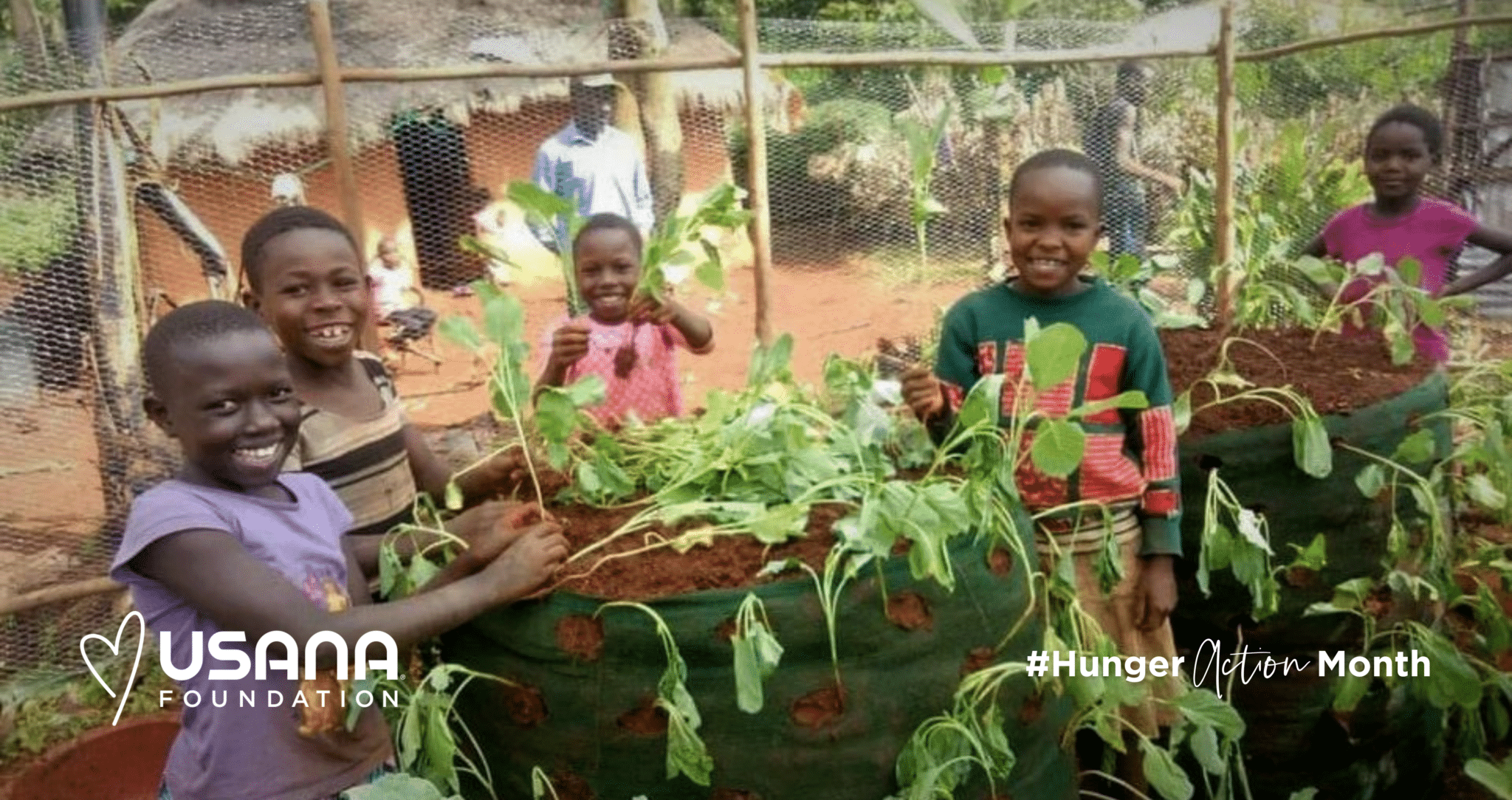Global food insecurity remains a pressing issue affecting millions of people worldwide.
The unfortunate reality is that poverty, climate change, conflict, water scarcity, and population growth are among the major factors contributing to this problem. However, amidst these challenges, the USANA Foundation has been taking innovative steps through our Garden Tower program to address and overcome these issues, creating communities of sustainably fed families that support each other in establishing nutritious gardens.
Let’s explore the impact of the top five factors contributing to global food insecurity and how our sustainable Garden Tower program is making a difference.
1. Poverty and inequality fuel food insecurity
Poverty and inequality have a profound impact on access to nutritious food. Families living in poverty often struggle to afford sufficient and healthy meals, leading to malnutrition and hunger.
Our Garden Tower program helps break this cycle by providing families with an opportunity to grow their food sustainably. By cultivating their gardens, families can access fresh produce, reducing their dependency on expensive market-bought items!
Moreover, the Garden Tower’s innovative design maximizes space efficiency, making it ideal for families living in cramped urban areas with limited access to arable land. Our global program enables low-income families to become more self-reliant in terms of food production, empowering them to rise above poverty and improve their overall well-being.
2. Climate change and extreme weather events disrupt food accessibility
Climate change poses a significant threat to global food security. Also, erratic weather patterns, such as prolonged droughts and destructive floods, adversely affect crop yields and livestock production.
Our Garden Tower program contributes to climate resilience by offering an adaptable solution to growing food. Its portability allows families to move many of the Towers indoors during extreme weather events, safeguarding crops from damage and ensuring a stable food supply.
Also, the Tower’s vertical design optimizes space usage, allowing more crops to be grown per square foot. The good news is that this increased efficiency minimizes the ecological footprint and lowers the carbon emissions associated with food production, contributing in its own way to mitigating the effects of climate change.
3. Conflict and political instability contribute to malnutrition
In regions afflicted by conflict and political instability, food production and distribution systems are often disrupted, exacerbating food insecurity.
The Garden Tower program brings hope to these communities by fostering collaboration and resilience. Families working together to create communal garden spaces establish stronger bonds, support each other during challenging times, and build self-sustaining systems that endure despite external disruptions.
Additionally, Towers’ ability to grow food in smaller spaces allows communities to establish gardens even in areas directly affected by conflict or restricted access to arable land. By cultivating nutritious crops locally, communities can become more resilient to external disruptions and reduce their dependence on food aid.
4. Water scarcity fuels food insecurity
Water scarcity is a critical concern for sustainable agriculture and food production. The USANA Foundation’s Garden Tower program addresses this issue by promoting water-efficient gardening techniques.
The Tower’s design enables the implementation of drip irrigation systems, minimizing water waste and ensuring that crops receive the right amount of hydration. In regions where water resources are scarce, this method of gardening becomes vital in sustaining food production.
Moreover, the Tower’s ability to grow a significant amount of food in a smaller space means that families can optimize their water usage efficiently, making it ideal for drought-stricken areas where water conservation is crucial for survival.
5. Population growth and urbanization contribute to hunger
As the global population continues to grow, urbanization places pressure on traditional agriculture and food supply chains.
Our Garden Tower program addresses this challenge by enabling families to grow their food within urban settings. Urban gardens not only provide fresh produce but also improve air quality, beautify the environment, and foster a sense of community—a factor crucial to thriving in any city.
By encouraging the establishment of urban gardens, our Garden Tower program supports a sustainable and localized approach to food production, reducing the strain on global food supply chains and ensuring that urban populations have better access to nutritious food.
A beacon of hope among food insecurity
We are thrilled to say that the USANA Foundation’s Garden Tower program has emerged as a beacon of hope in the fight against global food insecurity.
By addressing the top five factors that contribute to this crisis, the program empowers communities to become self-reliant, resilient, and sustainable. Over the last three years, the installation of 20,000 Garden Towers in dozens of communities around the world has demonstrated the program’s effectiveness in combating food insecurity and fostering a brighter, healthier future for families in need.
Through continued support and innovation, the Garden Tower program holds the potential to transform countless lives and create a more food-secure world for all. Donate $20 today to give a Garden Tower to a family in need!









